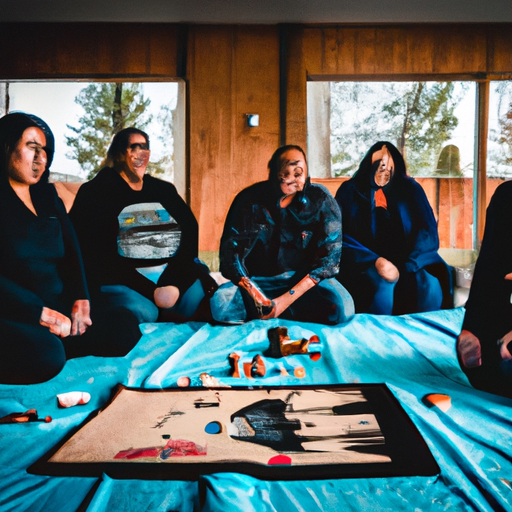The Current Canadian Opioid Crisis Unfolds: Insights from First Nations Perspectives
In our continuous efforts to support awareness and foster understanding about the Canadian opioid crisis, we shed the spotlight on the latest report from Aboriginal Peoples Television Network (APTN News). This report provides not only critical insights into the crisis but also unveils the unique vantage the First Nations communities have on the issue.
Opioid Class Action and Assembly of First Nations
An interesting facet of the opioid crisis is the opioid class action against manufacturers of opioids. Powerful pharmaceutical companies are being held accountable for their role in the epidemic. Recently, a former chief is suing the Assembly of First Nations (AFN) over its handling of a negotiated settlement worth billions with the federal government, stirring much debate and creating division within the indigenous community.
Indigenous leaders have previously voiced concerns that the federal government is using the AFN as a ‘gatekeeper’, which could limit how settlement money reaches grassroots communities struggling with the effects of the opioid crisis. The class action is designed to provide recovery for communities devastated by opioids, dealing with waves of overdoses, increased crime rates, and a surge in homeless populations.
The Impact and Ramifications of the Opioid Crisis
The opioid crisis harms communities on multiple fronts – from straining healthcare resources to causing significant socio-economic disruptions. It is an epidemic marked by:
- Increased levels of crime: The illegal sale and consumption of opioids spur a significant rise in overall crime rates. Drug-related offenses, thefts, and sometimes violent crimes escalate.
- Escalating homeless populations: The opioid crisis and homelessness are intricately linked, as those struggling with addiction face difficulties maintaining their homes and jobs, further pushing them into a cycle of poverty and homelessness.
- High costs to public health: An increase in opioid-related emergencies and fatalities burden the public health system. The usage of naloxone, an emergency treatment for opioid overdoses, has sky-rocketed.
- Deep-seated socio-economic issues: The consequences of opioid addiction are not limited to the addicted individuals but seep into the entire community, leading to breakdowns in social infrastructure, family structures, and the workforce.
A Way Forward: Addressing The Opioid Crisis
Addressing the opioid crisis demands multifaceted strategies – from prevention and education to providing accessible treatment options and holding those accountable who have contributed to the crisis. Here, the lawsuit against opioid manufacturers serves as a critical component of justice and rehabilitation.
However, it’s equally important to ensure that the settlement reached truly benefits those hardest hit by the epidemic. Transparent handling of funds and inclusive decision processes that meaningfully involve affected communities will be necessary to achieve this.
Summary and Key Takeaways
In conclusion, the opioid crisis is a pressing issue in Canada, one that requires urgent attention and multifaceted responses. The following points are key in understanding the dynamics at play:
- The opioid class action provides an opportunity to hold opioid manufacturers accountable and provide much-needed relief to affected communities.
- The Assembly of First Nations plays a crucial role in these negotiations, but criticisms have been voiced about potential gatekeeping, prompting the need for more transparency and inclusivity.
- The opioid crisis contributes to increased crime rates, growing homeless populations, strained healthcare resources, and socio-economic disruptions.
- Strategies for tackling this crisis should include prevention, education, accessible treatment options, accountability of responsible parties, and transparency in funds allocation.
As we move forward, our focus is on supporting the communities affected by this crisis and contributing to efforts that seek to alleviate the pain of those struggling with opioid addiction. The fight against the opioid crisis continues, and our voices will serve to echo the stories of those affected, the challenges they face, and the hope that we all hold for a better future.


